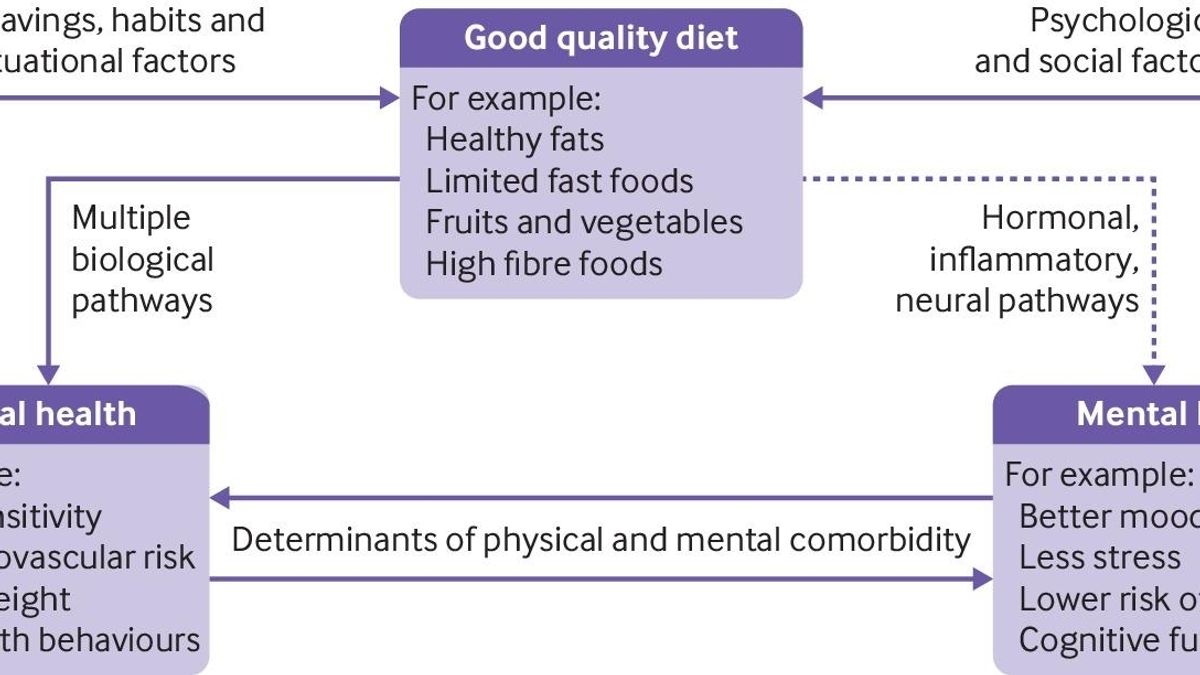
Imagine sitting down to a plate filled with vibrant vegetables, whole grains, and freshly caught fish. Beyond the appealing presentation and satisfying flavors, there’s growing evidence that such a meal could also be a feast for your mental health. Recent studies are painting a clearer picture of how our dietary choices — from the convenience of processed meats to the freshness of the produce aisle — can significantly impact our emotional well-being. This revelation invites us to consider not just what we eat but how our diets may be silently shaping our moods and mental states.
The Connection Between Diet and Mental Health
At the heart of this discussion is a recent article that emphasizes the profound impact of diet on mental health. It highlights the role of essential nutrients like omega-3 fatty acids, found in abundance in fatty fish and certain seeds, which are crucial for brain function and may help mitigate symptoms of depression and anxiety. The piece draws connections between dietary patterns and mental health outcomes, suggesting that a diet rich in whole, fiber-rich grains, fruits, vegetables, and fish contributes to a more balanced mood and overall well-being.
A study carried out by a team from Brazil and published in Neuroscience further supports this idea, demonstrating that high-calorie diets can impact mental health in rats within just two weeks. The research explored the rapid effects of calorie-dense foods on anxiety, finding that rats on such diets exhibited more anxiety-related behaviors compared to those on standard diets. This study, while focused on animals, underscores the potential for short-term diet choices to influence mental health significantly.
Reevaluating Our Food Choices
The implications of these findings are vast, challenging us to reevaluate our food choices in the context of mental health. The Signos article discusses the significant connection between diet and mental health, emphasizing the importance of a balanced diet for emotional balance and brain health. It mentions the MIND diet, a combination of the Mediterranean and DASH diets, known for its potential to reduce cognitive decline and improve brain function through an emphasis on plant-based foods and a reduction of processed and animal-based foods.
However, it’s important to approach this data with a critical eye. While the evidence points to a strong link between diet and mental health, nutrition alone cannot resolve all mental health issues. Personalized nutrition and lifestyle adjustments, considering individual cultural backgrounds and genetic makeup, are crucial for promoting mental wellness. Additionally, the research, particularly that involving animal models, is a stepping stone rather than a definitive guide for human dietary recommendations.
A Shift Towards Mindful Eating
The growing understanding of how our diets impact mental health advocates for a shift towards more mindful eating practices. By choosing foods that not only nourish our bodies but also support our mental well-being, we can take a holistic approach to health. This doesn’t mean overhauling one’s diet overnight but rather making conscious choices that align with nutritional science and personal health goals.
As we navigate through aisles of processed foods and fast-food options, the call for a diet comprising whole, nutrient-rich foods becomes more relevant. It’s a reminder that our daily food choices can be powerful determinants of not just physical health but mental and emotional well-being too. In a world where mental health is increasingly at the forefront of health discussions, the link between diet and mental health offers a promising avenue for prevention and wellness.
